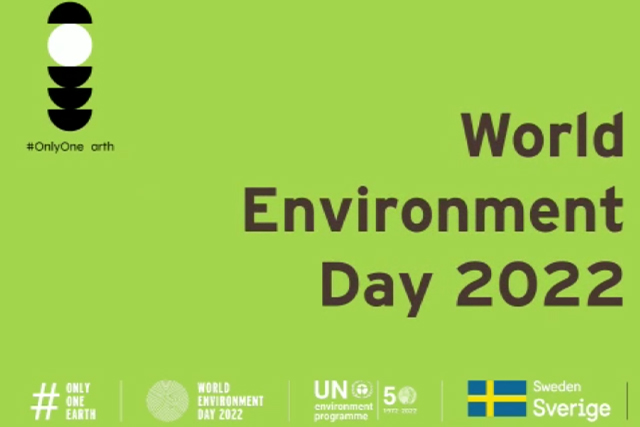To commemorate World Environment Day, the United Nations Environment Programme (UNEP) put in place an opportunity for influential companies such as Exxaro Resources, to share the steps they have taken to make a positive impact on the planet.
This year’s theme – Only One Earth – has emphasised the importance of collaborating on a global scale towards transformative action to celebrate, restore and protect our planet.
Exxaro Resources, as a leading diversified mining and renewable energy solutions company, has a commitment to protect the environment and communities in which it operates by powering better lives in Africa and beyond. There is a common misconception that the mining sector cannot coexist with environmental stewardship, but Exxaro has proven otherwise.
Exxaro’s Group Manager of Environment, Mining Licences, and Sustainability, Mr.Tsheko Ratsheko explains, “We acknowledge the role the mining industry plays in contributing to our ecosystem. Therefore, in support of this year’s UNEP campaign and World Environment Day, our actions demonstrate our positive impact towards improving waste management, cutting emissions, and restoring ecosystems on land.”
Improving Waste Management
According to the company’s 2021 Environmental, Social and Governance (ESG) Report, one of its integral environmental commitments is to implement a cradle-to-grave approach towards waste management to promote minimisation, recycling, and energy recovery.
“Mining processes create various waste streams which impacts our fragile ecosystems. To maintain our licence to operate, a successful waste management plan must be developed. In 2021, Exxaro experienced an increase of 7% in general waste recycled and another 5% increase in recyclable and reclaimed waste at our biggest mining complex - Grootegeluk mine in Lephalale, located in the Limpopo Province. Furthermore, the total weight of hazardous waste generated and sent to landfill decreased by 66% in 2021,” added Ratsheko.
Mr Ratsheko further explained that through the company’s various initiatives, it aims to achieve between 80% to 85% diversion of recyclable waste to landfill sites.
Cutting emissions
As part of our Sustainable Growth and Impact Strategy, it is our goal to achieve carbon neutrality by 2050. To enhance our effectiveness as we gear up for our transition and coordinate our internal and external responses, we have established a climate change and decarbonisation portfolio office management (PMO). The PMO comprises all functional areas of the organisation with leadership from Dr. Nombasa Tsengwa (current CEO designate).
“To ensure alignment with our carbon emission reduction goals, a steering committee oversees energy management projects and activities. This helps us to understand risks and opportunities so that our operations can focus on managing energy consumption, carbon emissions and other climate change-related matters,” said Mr Ratsheko.
Restoring ecosystems on land
Exxaro systems ensure that it remains consistent in complying with environmental sustainability by implementing projects that drive coexistence between the environment and its communities.
“Restoring ecosystems on land includes transferring 90% of post-mining land to emerging farmers in local communities by 2026, thereby ensuring that we provide opportunities for communities to sustain themselves beyond the life of mine. This is one of our strategic objectives to position Exxaro as a catalyst for economic development and environmental stewardship towards a Just Transition. Hence, a total of 10 potential impact investment opportunities have been developed.”
Furthermore, Exxaro has sponsored three chairs at the universities of Wits, Pretoria and Unisa over the past decade to support and provide training in climate change and the management of energy, water, and land.
The Only One Earth campaign by UNEP serves as a reminder to the mining industry on the role and impact the industry has towards protecting the planet and its people. “We deem it important to regularly improve our natural surroundings. Through our commitment and stewardship practice, we not only strengthen our organisational resilience of ‘powering a clean world’, but we maintain the protection of the future of our environment,” Ratsheko concluded.
